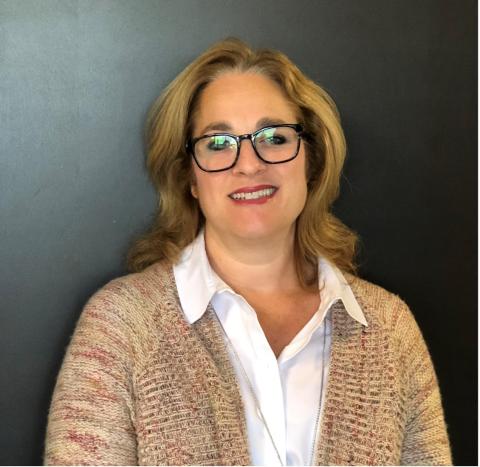
“How do we improve health outcomes in a safety net population?” asks Rebecca Sweeney, Associate Chief of Care Management. “Deal me in!”
Tough challenges energize Sweeney. Recently promoted from Senior Director of Care Management, she has been with Cambridge Health Alliance (CHA) for five years. CHA is a safety net, integrated health system comprised of two acute hospitals - a network of primary care and specialty outpatient clinics - as well as other community-based programs targeted to serve special vulnerable populations. CHA’s mission is “We Care for All”. Responding to the organizational mission of providing healthcare for the area’s at-risk population, she is forging ahead with ambitious plans.
One of her initiatives is a peer recovery coach program for patients struggling with addiction. Certified Recovery Coaches have personally walked that tough trail and now dedicate their time to building trust with patients thus opening the door to accepting treatment. The program has gained a reputation in the community for its personalized approach and successful outcomes.
“This is a mission-based on compassion and kindness but, from a practical standpoint, providing help for these patients early on avoids costly emergency room visits later. I am working with our Medical Economics department and Tufts MD/MPH students to complete an evaluative study on its clinical and utilization effectiveness.”
Prior to joining CHA, Sweeney spent ten years in progressive leadership roles in the nursing home industry. “I loved geriatrics. I grew to know the residents and their families as if they were my own. The work of nursing in long-term care is often undervalued yet it requires a high degree of autonomy and special skills. Long-term care nurses often serve a vulnerable population of frail elders who are poor and lack a social support system of their own. One of my proudest moments as a nurse leader was witnessing my staff support residents and their families through the dying process. This is real nursing where the impact of our practice is visible.”
Leadership should foster a “supportive environment in a culture of safety where people can learn from mistakes without punitive consequences and feel free to speak up about improvements. If the team works together well, the patients benefit from better care.”
With Master’s degrees in nursing administration and business from Salem State University, Rebecca set her sights on earning a DNP. The Doctorate of Nursing Practice program at the University of New Hampshire covered every aspect of leadership, including topics such as quality improvement, critical assessment of evidence, data analysis, and simulated testimony for healthcare policy-making testimony. She believes that leadership skills are critical to gaining a “seat at the table” for nurses who want their voices to be heard during the formation of policies and initiatives.
“My industry understanding has evolved to a new level since I completed the DNP, and everything I learned was immediately applicable to my job. UNH Online offers a well-organized program taught by wonderfully supportive and smart nurses whose backgrounds combine both research and clinical experience.”
Sweeney embraces her career with solid leadership skills and a spirited determination to maintain the human connection at the center of every enterprise. But, above all, it must be done with an open heart.